In the dynamic field of special education, ongoing professional development is not just beneficial—it’s imperative. Special education teachers, dedicated to the unique needs of their students, must continually expand their knowledge, refine their skills, and stay abreast of evolving best practices. This article delves into the realm of professional development for special education teachers, providing insights into where to start this journey of growth and expertise.
The Crucial Role of Professional Development
Professional development in special education teacher jobs is more than a box to check—it’s a commitment to excellence, to the students entrusted to their care, and to the ever-evolving landscape of education. In a field where adaptability and expertise are paramount, continuous learning is not just encouraged; it is a cornerstone of effective teaching.
Understanding the Unique Challenges of Special Education
Special education teachers work with students who have diverse learning needs, from intellectual disabilities to behavioral challenges and everything in between. To address these challenges effectively, professional development must be tailored to the unique demands of the field.
- In-Depth Training on Specialized Topics:
- Explore workshops and courses that delve deep into specific areas of special education, such as autism spectrum disorders, learning disabilities, and behavioral interventions. This focused training equips teachers with specialized knowledge to address the unique needs of their students.
- Legal and Ethical Considerations:
- Stay informed about the legal and ethical aspects of special education. Workshops on Individualized Education Programs (IEPs), understanding and implementing the Individuals with Disabilities Education Act (IDEA), and maintaining confidentiality are essential components of professional development.
Starting Points for Professional Development
For special education teachers looking to embark on a journey of professional development, here are some starting points:
1. Online Learning Platforms:
- Benefits:
- Flexibility: Learn at your own pace and at times convenient for you.
- Variety: Access a broad range of courses on special education topics.
- Platforms:
- edX, Coursera, and Professional Learning Board offer courses specific to special education.
2. Local Workshops and Seminars:
- Benefits:
- Networking: Connect with local educators and professionals.
- Contextual Learning: Address specific regional challenges and contexts.
- Sources:
- Check with local educational institutions, school districts, or education-related organizations for upcoming workshops.
3. Conferences and Symposia:
- Benefits:
- Exposure to Innovations: Stay abreast of the latest trends and innovations in special education.
- Networking Opportunities: Connect with experts and educators from around the country.
- Noteworthy Conferences:
- Council for Exceptional Children (CEC) Annual Convention, International Society for Technology in Education (ISTE) Conference, and National Autism Conference.
4. Graduate Programs and Certifications:
- Benefits:
- In-Depth Learning: Engage in comprehensive coursework.
- Career Advancement: Pursue advanced degrees or certifications for career growth.
- Programs:
- Master’s in Special Education, Board Certification in Behavior Analysis (BCBA), and other advanced certifications.
5. Collaborative Learning Communities:
- Benefits:
- Shared Experiences: Learn from the experiences of fellow educators.
- Collaborative Problem Solving: Discuss challenges and find solutions collectively.
- Options:
- Join online forums, local teacher meet-ups, or social media groups focused on special education.
Utilizing Education Staffing Solutions for Professional Growth
Education staffing solutions play a crucial role in connecting special education teachers with opportunities for professional development. Here’s how teachers can leverage these services:
- Access to Job Opportunities:
- Education staffing agencies can connect teachers with job opportunities that align with their professional development goals.
- Networking Opportunities:
- Attend events organized by education staffing agencies to network with other educators, administrators, and professionals in the field.
- Stay Informed About Trends:
- Education staffing agencies often have insights into the trends and demands in the job market. This information can guide teachers in choosing relevant professional development opportunities.
- Explore Training Programs:
- Some education staffing solutions provide training programs or partnerships with educational institutions, offering teachers avenues for continuous learning.
Conclusion: A Lifelong Journey of Growth
In conclusion, professional development for special education teachers is not a one-time event; it is a continuous journey of growth and learning. From specialized online courses to local workshops, conferences, and collaborative learning communities, the avenues for growth are diverse and dynamic. Utilizing education staffing solutions can further enhance these opportunities, providing teachers with access to job openings, networking events, and insights into industry trends.
For those seeking special education teacher jobs near them or in the USA, investing in professional development is not only a commitment to personal growth but also a testament to the dedication to providing the best possible education for students with diverse needs. As the field of special education Every Special Child continues to evolve professional development for better equipped to navigate challenges, implement effective strategies, and make a lasting impact on the lives of their students.






